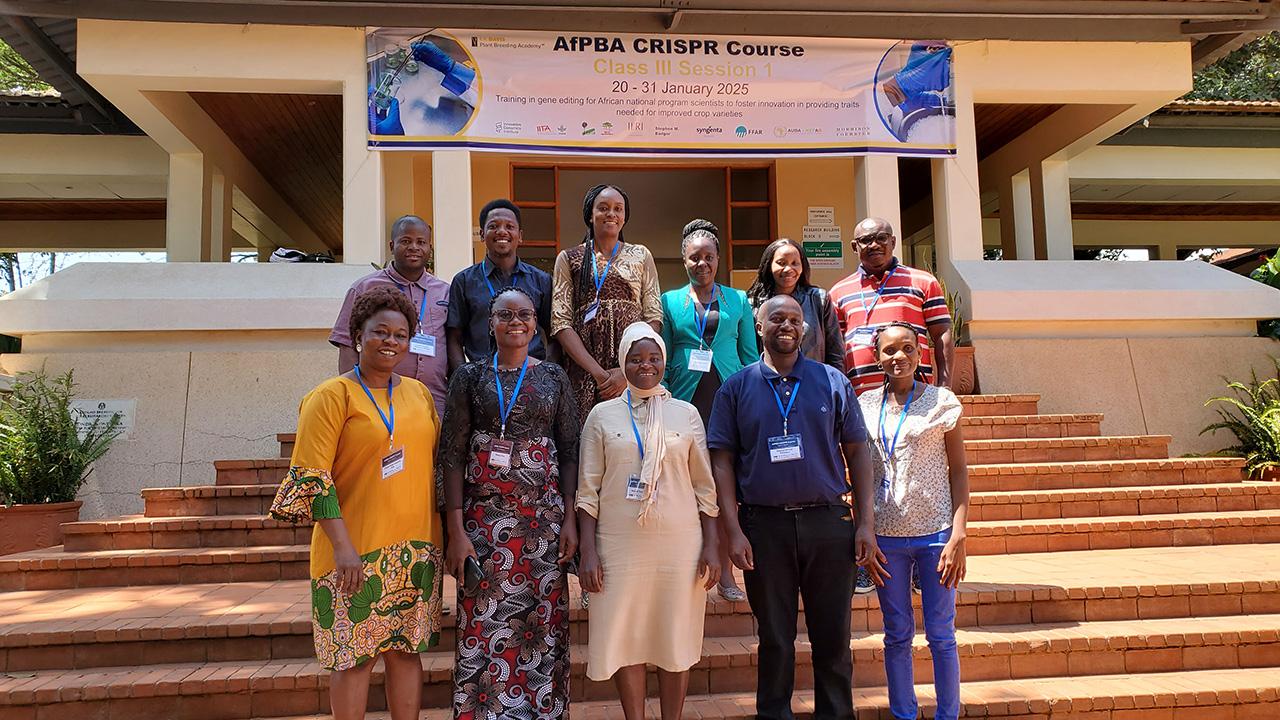
African scientists gain genetic tools to fight hunger at home
Advanced training supports food stability on continent
A course that trains African scientists to use genetic tools to improve food production on the continent has begun its third round, with guidance and support from UC Davis.
The African Plant Breeding Academy’s third cohort is offered through the African Orphan Crops Consortium, an initiative co-founded with UC Davis. Allen Van Deynze is the AOCC’s scientific director and based in the Department of Plant Sciences.
"By empowering scientists with cutting-edge tools like CRISPR, we are enabling them to tackle complex agricultural challenges and contribute to the sustainable development of food systems across the continent," said Van Deynze. He is also the director of the Seed Biotechnology Center and associate director of the Plant Breeding Center.
The class started in January with plant scientists and breeders from Benin, Burkina Faso, Ghana, Kenya and Nigeria. They are learning how to edit plant genes using CRISPR to produce crops more resilient to climate change, pests and diseases -- critical issues leading to hunger in Africa.
The course focuses on staple crops in Africa typically grown by small-scale farmers, such as taro, banana, okra and sweet potatoes. Participating scientists gain hands-on experience with CRISPR tools and will receive continued mentoring after completing the course to help establish gene-editing programs at their home institutions.
So far, the CRISPR course has trained 21 scientists from nine countries including Burkina Faso, Ethiopia, Ghana, Kenya, Malawi, Morocco, Mozambique, Nigeria and South Africa. Its alumni now lead life-changing projects in their countries enhancing crop productivity and contributing to sustainable food systems across Africa.
The January session was held in Nairobi, Kenya, at the World Agroforestry Center and the International Livestock Research Institute, and hosted by the International Institute for Tropical Agriculture. The cohort will continue with sessions in April and September.
“This training is the first of its kind to impart knowledge, skills and tools to accomplish gene editing in crop plants to national program scientists in Africa,” said Rita Mumm, AOCC’s director of capacity development and mobilization.
Food stability through public-private partnership
The course is offered through the African Plant Breeding Academy, a program managed by the UC Davis Plant Breeding Academy. Mumm is director of the African Plant Breeding Academy and the course’s principle instructor.
Among the course’s sponsors are the Foundation for Food and Agriculture Research, of the U.S. Department of Agriculture, Syngenta, Bayer and Steve M. Badger.
Media Resources
- Trina Kleist, UC Davis Department of Plant Sciences, tkleist@ucdavis.edu, (530) 754-6148 or (530) 601-6846
